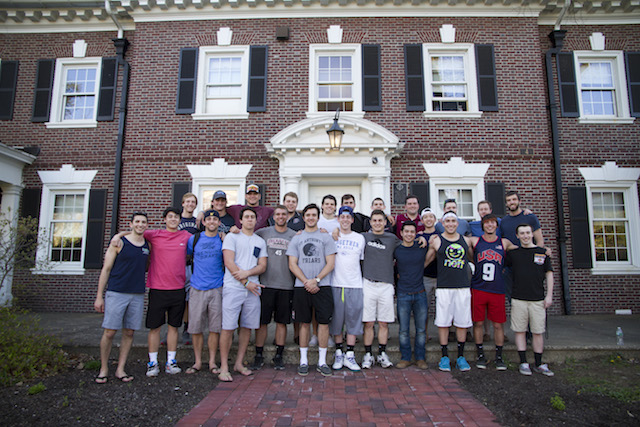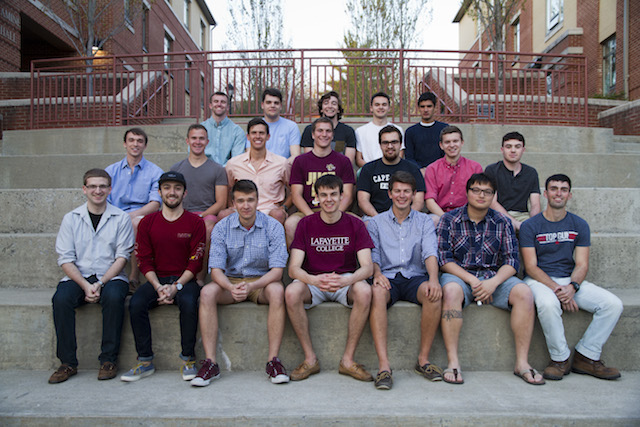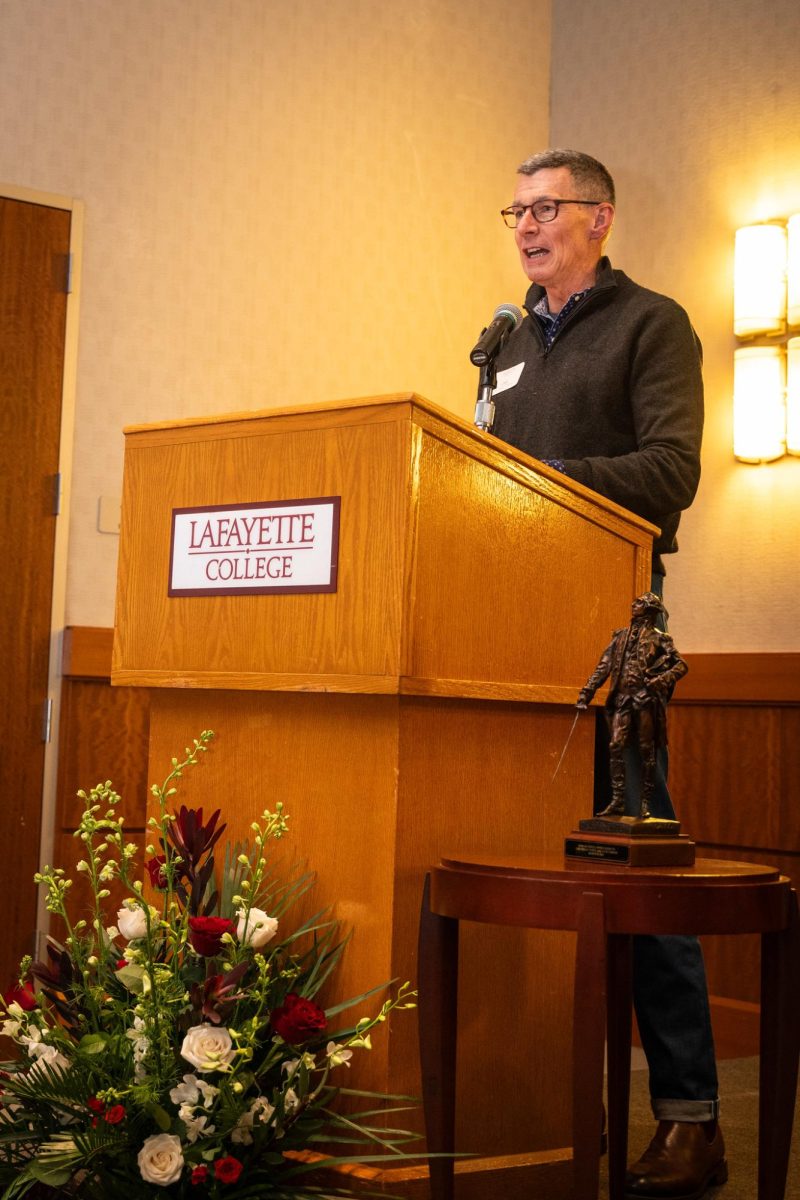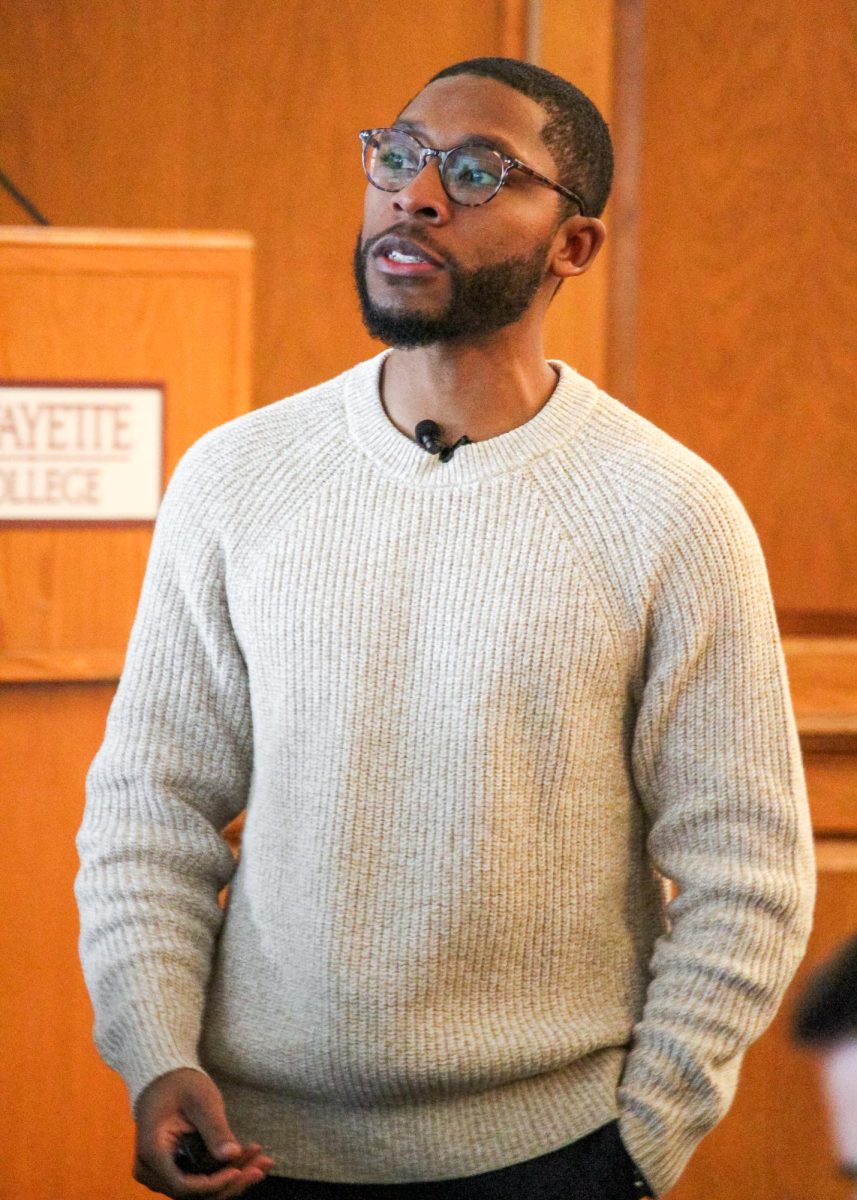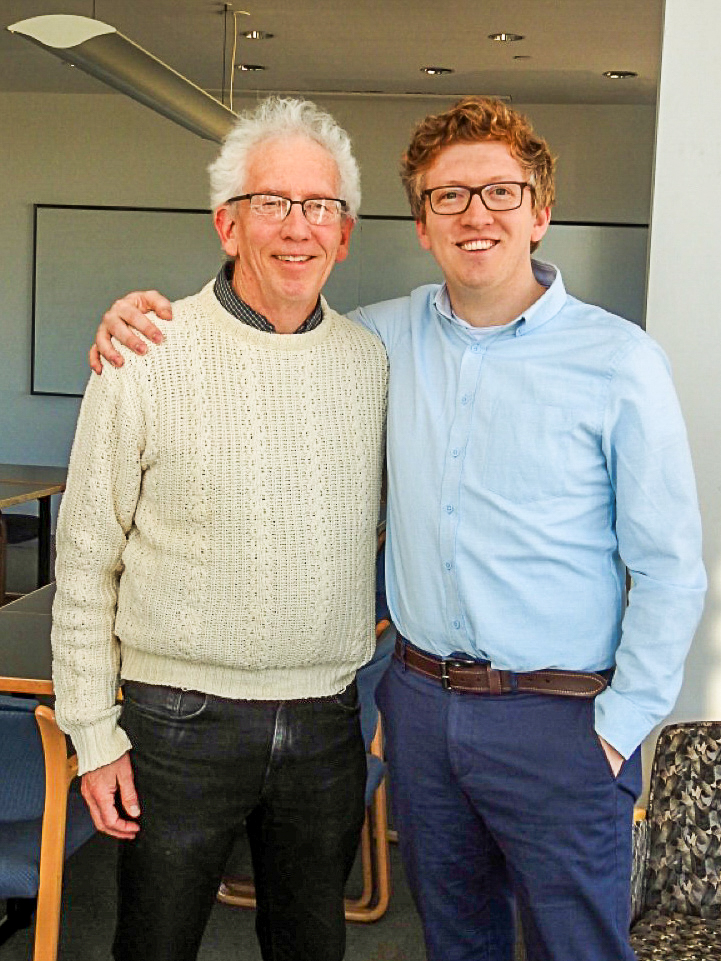DTD joins Chi Phi in greek application process
A group of students who wish to the Delta Tau Delta fraternity to campus have reached interest group status, joining the Chi Phi Rho Chapter fraternity as one of two interest groups at Lafayette.
The prospective Greek organizations are the first two groups to navigate the three-part process to becoming recognized organizations on campus. With their status as interest groups attained, the two groups are currently waiting for the school to accept their application for colonization, according to Associate Director of Residence Life and Advisor to Greek Life Dan Ayala.
Both organizations expressed hopes of a best-case scenario of gaining full recognition from the college in time for Fall 2015 semester.
But, while they can apply for colony status as soon as the committee invites them to turn in their applications, the groups must remain a colony for a minimum of one year, according to Vice President of Student Life Annette Diorio. She said it is unlikely that the college’s policy of a minimum of one year as a colony will change for either of these organizations.
According to Diorio, based on the process laid out by the college, both groups cannot be colonies at the same time, since they are both members of the same umbrella organization, the North-American Interfraternity Conference.
“We don’t want to recognize so many groups [at one time] that it upends [the Greek] system,” Diorio said. “We’re not trying to be difficult. We’re just trying to make sure that we can support the groups.”
President of Chi Phi Jack Poetzsch ‘16 is optimistic about Chi Phi’s chances of moving on to colonization first, as they already have an application and presentation prepared, but he doesn’t see DTD as competition for Chi Phi.
“It makes perfect sense that we are both interest groups, and it makes perfect sense that maybe we would be the first to reach colonization stage because we are so far along,” Poetzsch said. “It doesn’t hurt DTD, because they would have time to get things prepared.”
The committee that will review the applications for colonization of both groups has not been formalized yet, Ayala said.
Presently, Ayala said, the general composition of the committee has been determined, but who exactly will be on the committee has not yet been finalized. The committee will have representatives from each of the Greek organizations currently on campus, the director of residence life, as well other representatives from the faculty and administration, in addition to Ayala.
When the committee is finalized, they will invite the two groups to submit colonization application materials for consideration.
The decision for who will move onto the colonization phase first will be decided by the committee through rubrics judging the preparedness for colonization of the groups.
“We want ourselves to get recognized. We want Chi Phi to get recognized,” representative for DTD Dan Pallotta ‘16 said. “At this point, we’re just putting in as much effort into our own application as we can.”
A part of the process for the interested groups is to prove that they are bringing something new to the campus community.
The DTD group, which was last on campus in 1992, hopes to have the entire chapter be Safe Zone certified, have DTD networking and career events, and support the Juvenile Diabetes Research Fund which is the national DTD philanthropy, according to Pallotta.
“We understand the school taking its to time to figure this out,” Pallotta said. “This is a really unique experience for Lafayette, so we’re totally fine with however long the school needs.”
DTD and Chi Phi may be the first two groups to formally enter the process, but others have also expressed interest. A small group of students interested in Alpha Phi Omega, a co-ed service fraternity that was founded at Lafayette, have had preliminary conversations with Ayala.
